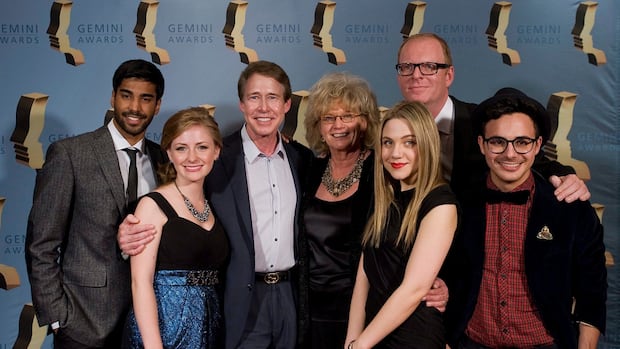As a film, Elio is gorgeous. In short, it’s a somehow equal parts miraculous and original wonder — so good it feels a bit out of place among a summer of adaptations, remakes, sequels and remakes of adaptations of sequels.
Perhaps not that last one. But it is hard to ignore the benefits of Elio: Pixar’s animation style (which seemed stuck in a perpetual state of diminishing Toy Story returns) has never looked more fluidly beautiful — especially when used to create a tapestry of glittering nebulae and spaceships.
Its characters come to life with originality and heart — none more so than its heart-breakingly damaged namesake, 11-year-old Elio Solis, a space-obsessed child trying his very best to provoke an alien abduction rather than running from one.
Brushing past some of its almost too kidd-ish qualities, Elio achieves almost shocking levels of originality, beauty and terrifying tragedy that do more than earn it the title of modern classic.
That said, it’s probably going to bomb.
There are more than a few reasons why that’s the case for Pixar’s latest release, and buckle up, because it all comes quickly.
We’re introduced to the movie’s heroic, pint-sized namesake with the narrative equivalent of a sledgehammer to the skull.
Elio is a silent, terrified child hiding under a restaurant table, worrying the laces of oversized shoes as he tries to spontaneously phase out of existence rather than acknowledge his aunt’s futile attempts to coax him back to his chair. It’s a lost cause though.
We soon learn that Elio (Yonas Kibreab) has just been orphaned, and his aunt Olga (Zoe Saldaña) is the unfortunate, too-young-for-this stopgap, burdened with unwanted parenthood she doesn’t have the life skills to handle — especially while juggling her job as a major in the U.S. Air Force, overseeing an array of telescopes scanning the skies for space debris.
But Elio’s no slouch. As he wanders off into the base, he’s more than aware he’s the one thing a child fears most — the primal, instinctive fear that eventually evolves into the scattershot assortment of neuroses we call a personality: being unwanted.
And as he stumbles into a conveniently-placed exhibit on Voyager 1 — the 1977 probe launched with a golden record, information about life on Earth and hopeful greetings for alien species — we suddenly get the animated equivalent of Citizen Kane‘s Rosebud.
Lying on his back, gazing slack-jawed at a glittering star-show about humanity’s search for friendly intelligence in the lonely and infinite cosmos while a single tear pools on his cheek, he understands: if no one wants him on this planet, he’ll go looking for one that does want him.
But it also does more. This latest offering from Pixar has finally arrived in theatres after a year-long delay and a wildly shifting strategy, possibly resulting from its fraught behind-the-scenes trajectory.
The result is a disparate, possibly alienating tonal melange of a UFO movie — somehow even more disorganized than that congressional hearing on UFOs we are all somehow fine with having happened.
For example: Jokes, storylines and even its sometimes stilted, always hand-holdy plot beats ring of a grade-school reading level — perhaps even more childish than Pixar’s increasingly tween-focused fare. But that’s at cross-purposes with Canadian co-director Domee Shi’s sci-fi/horror allusions that, though geared toward a younger audience, still manage to make grown-ups shiver.
How one scene depicting a disintegrating clone — almost directly lifted from Rick & Morty‘s horrifying “melting clone babies” moment — will manage not to inspire a juvenile nightmare epidemic is a mystery for the ages.

Delays, rewrites
To be fair, these moments are infrequent; a scriptwriting vestigial limb of what was likely a whiplash-inducing envelope push for Pixar. Given that the once dominant-studio’s last big non-sequel success was 2017’s Coco, it makes sense that they’d be swinging for the fences while trying to recapture the cultural zeitgeist with Elio, at least with the initial version.
Speaking to The Wrap, Pixar chief Pete Docter claimed Elio‘s delay from last year was due largely to the SAG-AFTRA strike, but behind-the-scenes changes saw the departure of much of the creative team, ushering in replacements Shee and co-director Madeline Sharafian.
That shift means the story is sometimes at odds with itself, and elsewhere obviously fractured and awkwardly reassembled.
The final version of the film has been so fundamentally altered that virtually every moment from its original trailer was purged — including one of the riskiest, genre-pushing, jokes: “I’m trying to get abducted,” Elio says, before quickly clarifying: “By aliens!”

But even after the loss of some of the more risque asides, there’s a seriously mature plot under the surface, one that reflects Disney’s wonderfully inventive, surprisingly unsuccessful 2007 time-travel comedy Meet the Robinsons.
In that movie, there’s a scene in which one character gives a singular reason for his relentless villainy.
In a flashback, we see a rage-filled, pint-sized orphan with bags under his eyes, skulking through a middle school hallway. Other children smile and wave as he passes and enthusiastically ask if he’d like to hang out after class while complimenting his “cool,” flowery-pink unicorn binder.
“They all hated me,” he narrates.
In Elio, our hero’s Meet the Robinsons-esque trauma-borne impulse to wall himself off from love or intimacy adds the last ingredient to this frankly bizarre hodgepodge: devastating tragedy.
While it’s maybe a little subtextual for the toddlers, anyone who’s heard the phrase “male loneliness epidemic” will see the beginnings of mental health issues that too often morph into isolation, depression and rage. Few children’s movies have grappled with this before — let alone while vesting it in such a crushingly sad character arc.
The hardest thing about watching Elio becomes keeping yourself from jumping through the screen to protect him at all costs.
And there’s also another complicating plot conceit: a 1985 interview with astronomer Carl Sagan, initially about space exploration and his book Contact.
“The search for life elsewhere is remarkable in our age, because this is the first time that we can actually do something besides speculation,” we hear Sagan’s sage voice intone. “It touches to the deepest of human concerns: Are we alone?”
This is quickly reinterpreted through Elio‘s more Earth-bound theme, as the voiceover tellingly bookends his flailings toward and away from love and acceptance, both from the aliens and Olga.

In short, it’s a lot. The movie’s originality is something to be marvelled at. Unfortunately, like Meet the Robinsons, it’s probably too original and too divisive to find a massive audience.
A polarizing study in loneliness that, unlike the intentionally tame and wildly successful Lilo & Stitch remake, is anything but conventional, Elio is a joyous, tragic, miracle of creativity. What’s most sad is how unlikely it is to be rewarded for that.





